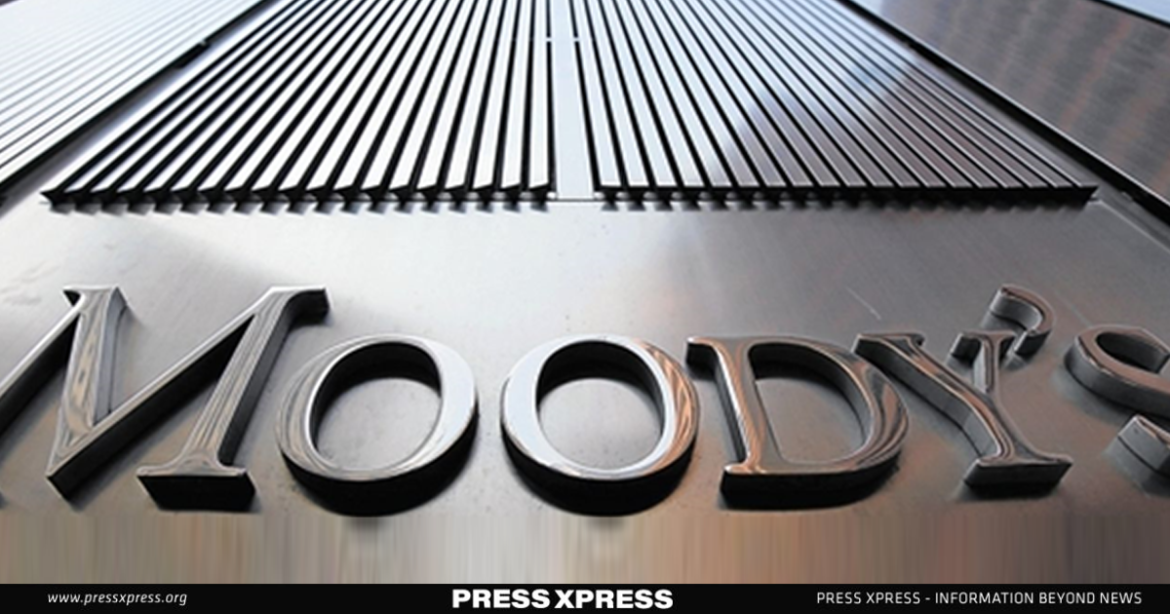In a shot of confidence for Bangladesh’s financial sector, Moody’s Investors Service recently upgraded its outlook for the country’s banking system from negative to stable. This revision marks a cautious but significant shift in sentiment regarding the health of Bangladeshi banks. This article delves into the context of this revision, explores the factors that prompted it, and analyzes its potential impact on Bangladesh’s banking landscape.
Background

You can also read: Oceangoing Ship Procurement Deal Between Bangladesh-China Nears Completion
Just a year prior, in March 2023, Moody’s had cast a shadow of doubt on Bangladesh’s banking system by downgrading its outlook to negative. This decision coincided with Bangladesh’s approach to the International Monetary Fund (
) for a $4.7 billion loan program. The IMF loan aimed to bolster Bangladesh’s foreign reserves and address its widening current account deficit. However, the negative outlook reflected anxieties about the potential for non-performing loans (NPLs) to surge and exert pressure on bank profitability. The specter of rising asset risks and potential liquidity challenges loomed large over the Bangladeshi banking sector.
Causes for the Revision
- Profitability: Moody’s anticipates stable profitability due to steady net interest margins and controlled credit costs. This projection aligns with the central bank’s efforts to strike a balance between risk management and growth.
- Capital Adequacy: Internal capital generation is expected to match capital consumption, ensuring stability. While external funding remains tight, the overall capital position is reassuring.
- Government Support: The stable outlook reflects Moody’s confidence that the government will continue to intervene when necessary to maintain systemic stability. This commitment is crucial for investor confidence.
The recent revision to a stable outlook suggests that Moody’s acknowledges improvements in the Bangladeshi banking sector. This shift in perspective likely stems from a confluence of factors. Firstly, Bangladeshi authorities, in collaboration with the IMF, embarked on a series of reforms aimed at shoring up the banking system. These reforms were not merely cosmetic; they included stricter regulations on loan classification and provisioning requirements. Additionally, they emphasized enhanced risk management practices within banks, a crucial step in identifying and mitigating potential loan defaults. Furthermore, initiatives to improve corporate governance within banks aimed to instill greater transparency and accountability, a vital component of a healthy financial system.
Secondly, there are indications of stabilization in the NPL ratio. While NPLs remain a concern, particularly among state-owned commercial banks, the pace of increase appears to have decelerated. This, coupled with efforts to recover bad loans through stricter enforcement mechanisms, might have instilled some confidence in Moody’s regarding the overall asset quality of the banking system.
Thirdly, Bangladesh’s economic growth, though projected to be slightly lower than initial estimates, remains robust. This continued growth provides a buffer for banks and mitigates the risks associated with loan defaults. A stronger economy translates to a more creditworthy borrower base, ultimately strengthening the overall health of the banking system.
How This Revision Helps Bangladesh’s Banking Sector
- Restoring Confidence: Zahid Hussain, former lead economist at the World Bank’s Dhaka office, rightly points out that global confidence in Bangladesh’s banking sector had eroded. Moody’s reassessment serves as a corrective measure, signaling renewed faith in the system.
- Reform Measures: The central bank’s implementation of reform measures, in line with the International Monetary Fund’s loan program, has started yielding results. Although it has been a year since these reforms were initiated, tangible improvements are already visible. Moody’s outlook likely reflects the positive impact of these reforms
The revision of the banking sector outlook to be stable carries several positive implications for Bangladesh. A stable outlook fosters greater confidence in the banking system, both domestically and internationally. This, in turn, can lead to increased foreign investment. Foreign investors, wary of a system perceived as risky, are more likely to be drawn to a banking sector with a stable outlook. This influx of foreign capital can bolster domestic credit availability and stimulate economic activity. Additionally, a more stable outlook might incentivize banks to ease lending restrictions, potentially stimulating economic activity by making credit more accessible to businesses. This can play a crucial role in propelling Bangladesh’s economic growth trajectory.
Furthermore, the revision serves as a vindication of the reform efforts undertaken by the Bangladeshi government and the central bank. It underscores the effectiveness of these reforms in addressing the concerns raised by Moody’s and paves the way for continued progress in strengthening the banking system. A stable outlook can act as a catalyst for further reforms, as it demonstrates the positive impact of past initiatives and encourages continued efforts towards a more robust financial sector.
A Cautious Optimism: The Road Ahead
Undoubtedly, Moody’s revision is a positive sign for Bangladesh’s banking sector. It signifies a recognition of the strides made in addressing vulnerabilities and implementing necessary reforms. This positive outlook can bolster investor confidence and potentially unlock new avenues for growth within the banking system. However, maintaining a stable outlook hinges on continued commitment to reforms and ensuring their effective implementation. While the initial steps have been promising, unwavering focus is required to fully address the challenge of NPLs. Additionally, fostering a culture of strong corporate governance within banks remains paramount. Only through sustained efforts can Bangladesh translate this cautious optimism into a truly robust and resilient banking system, well-positioned to propel the nation’s economic growth in the years to come.


